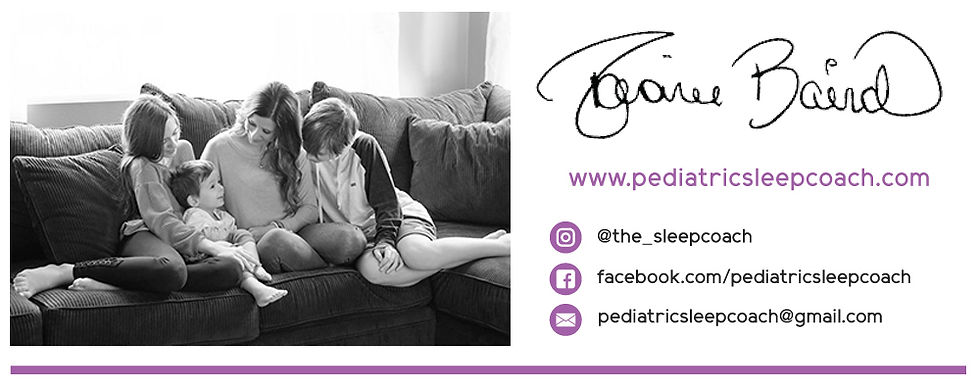Top Sleep Tips for Newborns: A Guide for New Parents
- Desiree Baird
- Apr 27, 2025
- 3 min read

Bringing a newborn home is one of life’s most exciting—and exhausting—experiences. Between diaper changes, feedings, and soothing sessions, sleep can feel elusive for both baby and parents. While it’s normal for newborns to wake frequently (their tiny tummies don’t hold much!), there are ways to create better sleep habits early on. Here are my top sleep tips to help your newborn rest easier—and help you get a little more rest too.
1. Create a Calming Bedtime Routine
Even from the first weeks, babies thrive on predictability. A short, simple routine—like a warm bath, gentle massage, feeding, lullaby, and snuggles—can help signal that it’s time for sleep. Keep the lights low and voices soft to set the tone for bedtime.

2. Watch Wake Windows
Newborns can only stay awake for short periods before becoming overtired. For most babies under 12 weeks, ideal wake windows are between 45 to 90 minutes. Some newborns can only stay awake for up to 30 minute stretches for the first few weeks - so it's impotant to be mindful. Watch for sleepy cues like yawning, zoning out, or fussiness, and offer sleep before they become overstimulated. As your baby approached 8 weeks old, you may have to be more aware of how many naps they are taking and how much total sleep. Want a handy magnet so you can keep this info on hand? Just click here and send me your mailing address and I'll drop one in the mail to you.
3. Day and Night Confusion? Reset Their Internal Clock
In the early days, many newborns have their days and nights flipped. Help reset their circadian rhythm by keeping daytime feeds and activity bright and social—and nighttime quiet and boring. Dim the lights, limit interaction, and use a soft voice at night.
4. Swaddle for Comfort and Safety
Swaddling can mimic the snug feeling of the womb and help reduce the startle reflex that can wake your baby. Use a breathable, snug (but not tight) swaddle, and always place your baby on their back to sleep on a firm, flat surface.
5. Don’t Fear the Pacifier
Pacifiers can be soothing and are safe to offer once feeding is well established. They’ve also been shown to reduce the risk of SIDS. If your baby loves the binky, let them have it—it’s a win for everyone.
6. Establish a “Sleep Zone”
Whether it’s a bassinet or crib, try to use the same sleep space consistently. Keep it free of pillows, blankets, or toys—just a fitted sheet and your swaddled baby on their back. A white noise machine can also help mimic the womb and block out household noise.
7. It’s Okay to Ask for Help
Sleep deprivation is real. Tag team with your partner if you have one, enlist a trusted friend or family member, or consider a sleep consultant if you’re feeling overwhelmed. You’re not meant to do this alone.
8. Be Gentle With Yourself
There’s no “perfect” way to do this. Your baby is learning how to sleep in the world, and you’re learning how to be a parent—it takes time. Celebrate the small wins, and know that better sleep will come.
Final Thoughts
The newborn phase is beautifully chaotic. With the right support and a few gentle strategies, sleep can become less of a struggle and more of a rhythm. Every baby is different, so follow your instincts and remember—you’re doing an amazing job. Need more sleep tips to help get through the newborn stage?
Get my FREEBIE!
Want a free Baby Sleep Cheat Sheet magnet? Just click here, send me your mailing address and I'll drop one in the mail. This offer applies to US Residents only. Be sure to follow me on Instagram @the_sleepcoach for more sleep tips and freebies.





Comments